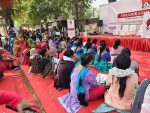Kochi: A top Church leader in Kerala has welcomed the federal government’s move to enact a uniform civil code in the country.
Such a law “would be useful for strengthening the unity of the country and its people” Cardinal George Alencherry, head of the Syro-Malabar Church, an influential Christian group in the southern Indian state, told reporters in Kochi on June 3.
The 71-year-old prelate’s comments came three days after the government led by Prime Minister Narendra Modi asked the Law Commission to “examine” the issue of implementing the uniform civil code that would be applicable to all religious communities in India.
Cardinal Alencherry, however, expressed the hope that while formulating the code, the authorities concerned would consider laws based on traditions and conventions. “This should take place through discussions and a consensus should emerge as ours is a hugely diverse country,” he asserted.
However, Kerala’s opposition leader Ramesh Chennithala has warned that the uniform civil code would spell the death knell of the nation’s secular fabric.
Experts say the uniform civil code will have far reaching consequences for the country that has now different personal laws for communities such as Hindus, Muslims and Christians to address matters related to property, marriage and divorce, inheritance and succession.
The proposed code is intended to replace personal laws based on the scriptures and customs of each major religious community in India with a common set governing every citizen.
This was the first time a government has asked the commission, which has a crucial advisory role on legal reform, to look into the politically controversial issue.
The political debate on a uniform civil code has been highly charged, and it is often entwined with a debate on secularism, experts point out.
The Bharatiya Janata Party (Indian people’s party) that now heads the federal coalition government has favored such a code whereas the opposition Congress party has opposed it. The party had in its 2014 parliamentary election manifesto promised the Uniform Civil Code.
Hindu and Muslim groups are on opposite sides of the debate. Hindus form more than 80 percent of India’s 1.32 billion people, followed by Muslims 14 percent. Christians, the third largest religious community, are only 2.3 percent.
Chennithala, Kerala’s former home minister, says the federal government’s move is a ploy to divide religious communities ahead of the upcoming elections for the legislative assembly of Uttar Pradesh. This is an agenda of the RSS that the BJP government is trying to implement and it will cause serious repercussions,” he told reporters on June 3.
RSS (Rashtriya Swayamsevak Sangh, national volunteers’ corps) is the umbrella organization for rightwing groups that strive for turning India into a Hindu theocratic country. BJP is considered its political arm.
BJP’s Kerala unit chief Kummanem Rajasekheran says those opposing the code stand against the country’s growth. He denied the government was meant to force the Hindu ideology on others.
The government move assumes significance as the Supreme Court had recently said it would prefer a wider debate, in public as well as in court, before taking a decision on the constitutional validity of ‘triple talaq’, which many complain is abused by Muslim men to arbitrarily divorce their wives.










